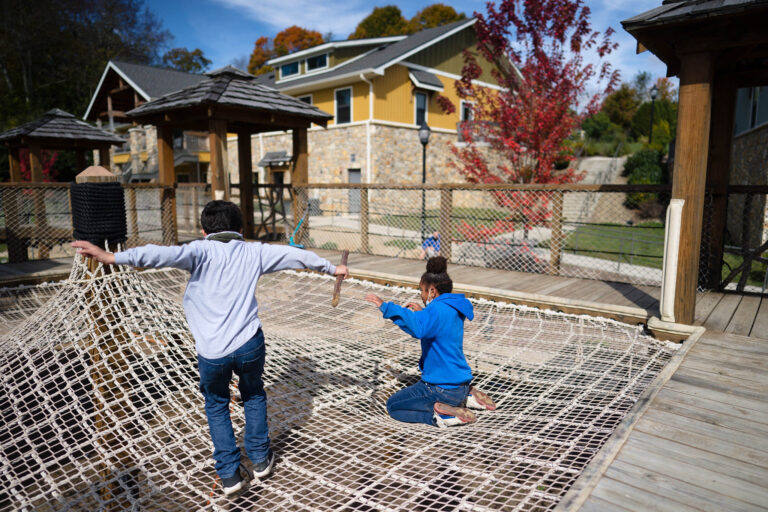As a foster parent, you learn many new skills and parenting techniques. Most foster parents feel educated on child behavior prior to their first placement. However, there are a variety of skill sets useful to being a foster parent. Many foster parents are surprised by how frequently a court date is scheduled for each case and how confusing the courtroom can be.
As a professional social worker and an adoptive parent, I have spent many days in court. The following is what to expect and some tips for the courtroom.
Who May Be at Your Day in Court
- It is a child’s right (in the state of NC) to attend court if they are 12 years old or older. This can be a very helpful experience for some children. However, it can also be very challenging to hear the content of what is discussed in court. Some judges, GALs, and attorneys will speak to the child in private chambers rather than having them testify on the stand. However, many children, especially teenagers, may want to or be asked to testify. As a caring adult, we should protect children in a courtroom without being dishonest about anything that has or could happen in court.
- You will likely see the child’s biological family members during your day at court. Do not be alarmed if the child or parents treat you differently at court. This is a stressful day for everyone. Remember, the child in your home is only placed there because an open case exists against the biological parents. That means even though this day feels personal to you, this day is actually about them. This is their scheduled court date to assess their progress. That means it’s likely an important day to the biological grandparents or the parents’ friends. It is not uncommon that you will see not only the biological parents of the child, but also their extended family and friends. Use this time as an opportunity to connect.
- There is no better place to see your child’s team since everyone has to be at court! You will see social workers, DSS supervisors, and your GAL. These professionals care about the child in your home. Use court as another opportunity to connect with them- share your joys and concerns. You are all on the same team- the child’s team!
- Sometimes a parent or family member who has had no involvement with the child thus far will show up to court. This could be because they were summoned to court. Or because this is their way to communicate their care for the child. Never be surprised when an uninvolved family member shows up to court, as is their right.
What Might Happen on Your Day in Court
- On the other side of the coin, many times, unfortunately, you will prepare and go to a court date where absolutely nothing happens. This could be because there are too many cases being heard. Thus, the case gets continued to another date. Or an attorney or parent requests the case get continued. Or possibly nothing is happening in the case right now. Remember, it often takes many months for a plan to change for a child in foster care. It can also take many months for a biological parent to complete a case plan. This means that nearly every foster parent has attended at least one court date where absolutely nothing happened.
- Sometimes you will learn new information in the courtroom. You might hear about a trauma the child experienced, a new baby on the way, a marital dispute, an arrest or new charges, or a myriad of other things. As an observer in the courtroom, you are obviously allowed to hear this information. But it is best that you not respond with a facial expression. For example, do not show if you are shocked, horrified, upset, angry, overjoyed, etc. You are a support person for the child on this day, and that should be your focus.
- Finally, one of the most eye-opening experiences of a day in court can be merely witnessing the other cases being heard. This can give you a quick understanding on how the courtroom works. Things like who gets to speak and when, what information is most important to the case, and who the most important players are in a case. While every case is unique, you can learn a lot by being a silent observer in a courtroom.

A Few Tips for You as a Foster Parent
- Every courtroom is different, but be prepared to be away from your cell phone for the entire day. While some courtrooms do allow you to have your phone, many do not. Plan to be fully unavailable for the entire day. Sometimes you will wait at court all day to be the very last case heard that day, or get pushed to the next day. Make arrangements with friends and family beforehand.
- Food and drink are typically not allowed in the courtroom. Most judges will take at least an hour for lunch. This leaves you with a chance to take a break and eat alone or eat with the biological family or any other members of the child’s team. There are no kitchens or microwaves accessible to the public in a courthouse, so you will either have to eat in your car or go out to eat.
- Many large words, phrases, and statements are used in a courtroom that are not used in common vernacular. Do not be embarrassed to ask someone what was said or what just happened. Remember, never call out in a courtroom. But always feel free to ask someone later if you aren’t sure. The child’s social worker or GAL are a great place to start.
- If you feel that you have something to say in court, write a letter and submit it beforehand. Many judges appreciate an update from the foster parent regarding how the child is doing, how interactions with the biological family have been going, and even your recommendations. Remember, again, this is not your court date. The judge can choose not to spend too much time on your letter. But most of the time a letter from a foster parent is much-appreciated.
- Bring pictures of the child to share! This is the best way to remind yourself and everyone else there that you are all on the same team. Everyone loves a cute picture of the child, who is the primary motivation for each adult’s involvement in the case. Biological parents, social workers, GALs, attorneys, and even judges appreciate pictures.
- Lastly, and maybe most importantly, maintain your composure no matter what. And be kind. Showing consistent kindness to the social workers, GALs, attorneys, and of course, to the biological family really goes a long way. A calm and kind foster parent in a courtroom is an incredible asset. That could be you!
For more information on how to become a licensed foster parent, visit crossnore.org/foster-home-licensing-and-training.



